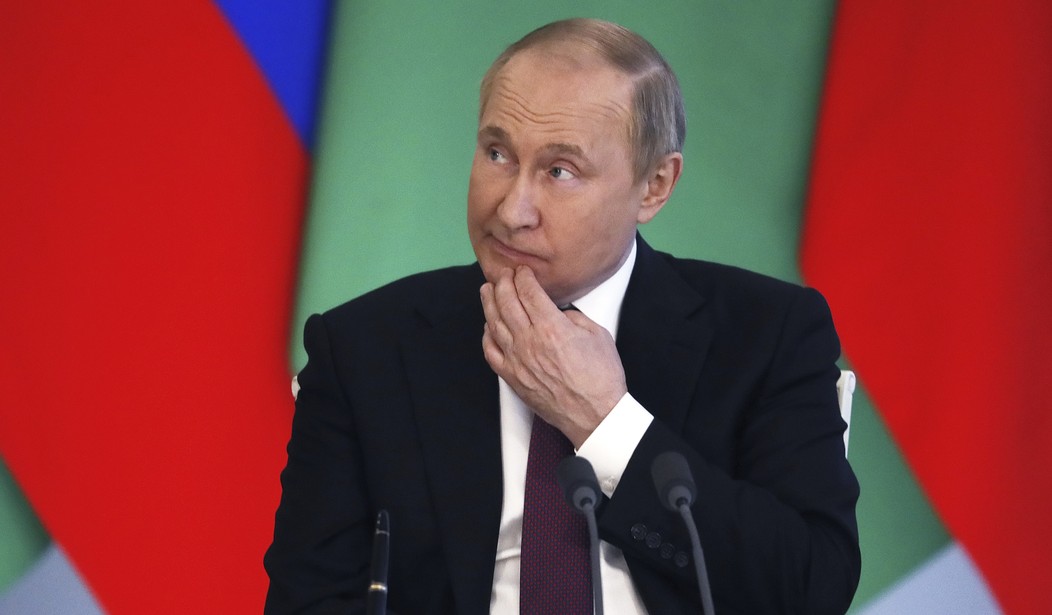Some Western leaders envy dictators' powers.
President Donald Trump said, when North Korea's Kim Jong-un speaks, "his people sit up at attention. I want my people to do the same."
President Barack Obama told reporters it would be so much easier to be the president of China.
Canada's foolish Prime Minister, Justin Trudeau, said he admires China because "their basic dictatorship is allowing them to actually turn their economy around on a dime."
These are stupid and dangerous fantasies.
Some people have a "utopian dream that if only someone at the top could just point us in a certain direction, everything would go well," says historian Johan Norberg in my new video.
"People like a strong leader," I point out.
"A strong leader of their own imagination," Norberg responds.
One example he gives: "Thomas Friedman of The New York Times famously said that he wanted to be China for a day to solve global warming."
If Friedman were dictator, he could solve global warming? I doubt it.
Yes, China has built lots of wind turbines.
"But those wind turbines don't produce more power!" Norberg points out. "Around 30% of them are not even connected to the grid. And why is that? Because they didn't build them to make money. They built them because they wanted to meet a political goal."
So China has useless wind turbines and, for power, builds more coal plants.
Another example: American media said we should look to China to contain COVID-19. NBC's Chuck Todd asked Dr. Anthony Fauci, "How uncomfortable is it that perhaps China's authoritarian ways did prevent this?"
Recommended
Fauci replies that China "prevented a broader spread."
But China's "'Zero COVID' policy turned into a nightmare," says Norberg. China locked people into homes. One city even killed COVID patients' pets. China is still the one country that will not acknowledge that we may have to learn to live with COVID.
"That's what you get with dictators," says Norberg. "If government is big enough to give you anything, it's big enough to take everything away from you."
At the beginning of the pandemic, America imitated China's lockdowns. The mayor of Los Angeles threatened to shut off power to people who did not follow his orders.
There was lots of political bickering about what our COVID rules should be. People don't like the bickering, but Norberg calls it one of democracy's strengths.
"Because it means that we see different things and we bring different ideas to the table." By contrast, "when we have one guy at the top, they begin to fall for their own propaganda."
That's probably what led to Russia's invasion of Ukraine.
"Putin thought that his own military was in excellent shape," says Norberg. "Ukraine was seen as a joke of a country, a place of latte-drinking comedians."
Ukrainian President Volodymyr Zelenskyy was a comedian before becoming president.
Putin assumed Ukrainians "would just run away the moment they saw muscular Russian paratroopers," says Norberg. "But it's been a disaster for them."
In freer countries, Norberg points out, "journalists (and) people online would've seen those problems and brought them forth."
But Putin's advisers fear telling him the truth. It's fun to watch one of his flunkies groveling.
I understand why his adviser stammers. Pointing out a problem might get him jailed, if not killed. It's why dictators get bad information. They make bad decisions because there's no open dissent.
"That's what happens when you centralize," says Norberg. "You lose individual initiative ... local knowledge. If you can mobilize everybody in one direction, sometimes they mobilize us all over the cliff."
I'm glad America has a government with limited powers.
"Democracy cannot guarantee the best governance, but it can prevent the worst from happening," concludes Norberg. "That is enough. That's really what freedom and democracy is about. It doesn't guarantee us heaven, but at least it makes us sure that we won't end up in hell."
























Join the conversation as a VIP Member